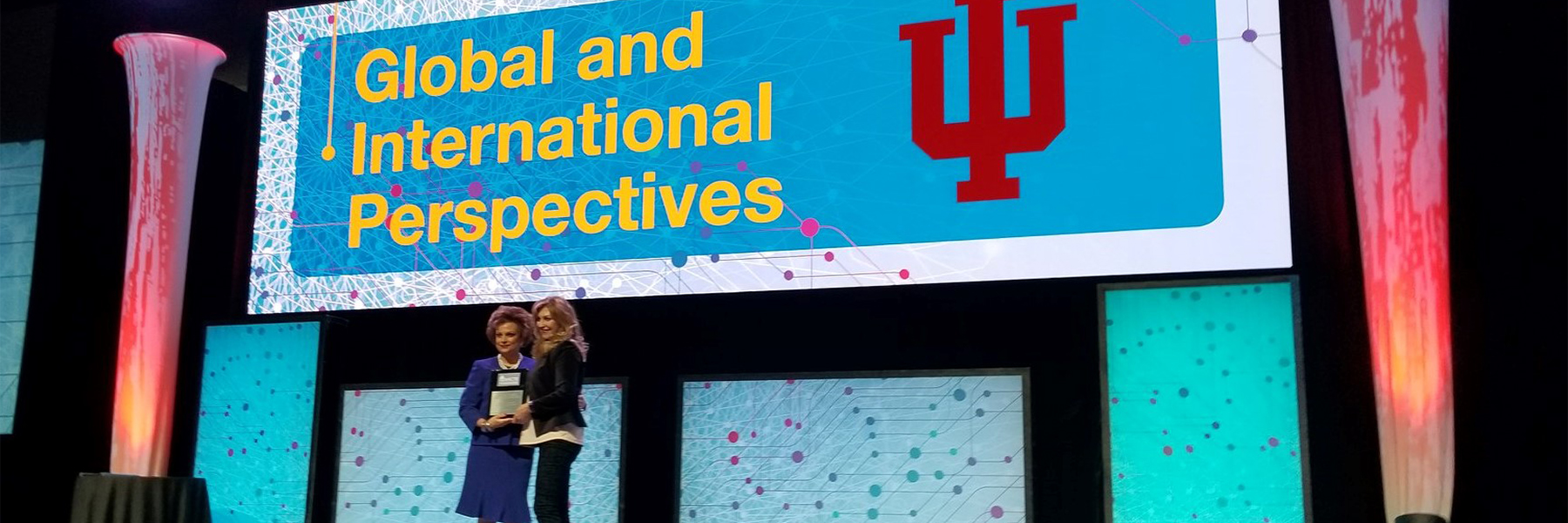Vesna Dimitrieska
Coordinator, Global Education Initiatives
School of Education and Hamilton Lugar School of Global and International Studies
Director, Global Classroom,Office of the Vice President for International Affairs
A global guide
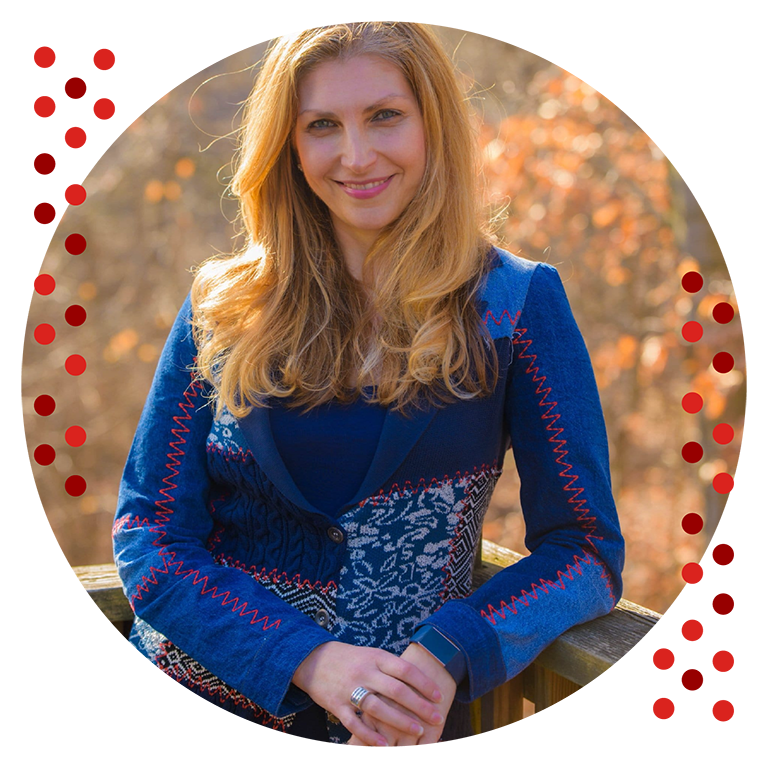
Education in Indiana is evermore global, much thanks to the direction of Vesna Dimitrieska. By the time Vesna reached Indiana University in 2012, she had already taught English in Macedonia, trained language teachers around the world, and completed a Master of Education in teaching English to speakers of other languages at Boston University.
In her current roles as coordinator of global education initiatives and director of Global Classroom, Vesna stewards a host of programs designed to help Hoosier educators of students from kindergarten to college to internationalize their teaching and curricula. Her responsibilities include conducting research on dual language immersion programs and on curriculum internationalization,raising the profile of less-commonly taught languages, supporting professional development for teachers, and managing a vast network of Global Classroom projects.
Vesna has also served as a coordinator for IU’s Bridges: Children, Languages, World Project and a tutor for the University of Cambridge’s Certificate of English Language Teaching to Adults. She has presented on pedagogy and internationalization in cities from San Diego to New York City and won both the National Network for Early Language Learning Award for Outstanding Support of Early Second Language Learning and the American Association of Colleges for Teacher Education Best Practice Award in Support of Global and International Perspectives.
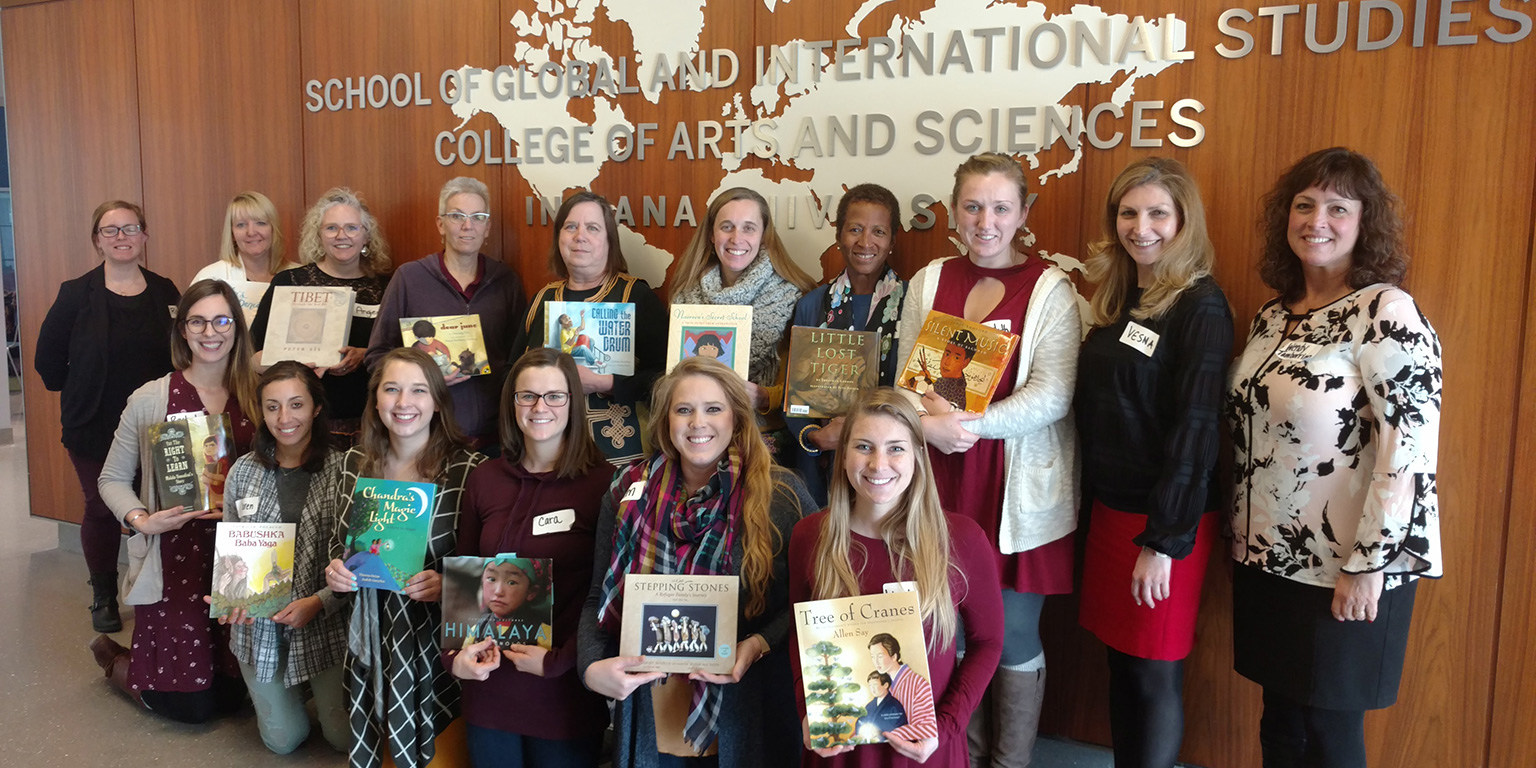
Q: What initially drew you to Indiana University?
A: When I was searching for doctoral programs, the courses offered and the faculty’s area of interest in the Department of Literacy, Culture, and Language Education within the School of Education impressed me as both diverse and, in several key instances, deeply aligned with my own research interests. Additionally, Indiana University, with several other stakeholders, founded the South East European University in Macedonia, where I worked as academic director and English lecturer before coming to IU. Faculty from IU would come to SEEU, providing exemplary professional development to our faculty and staff. My experiences with IU professors in Macedonia was the decisive factor in my final choice among doctoral programs.
Q: You contribute to so many efforts to internationalize K-12 classrooms, like the Global Literacy Invitation Project, Language Roadmap, and Windows to the World: Digital Artifacts for Global Educators. Why is it important to support teachers in this way?
A: Educators at all educational levels currently have an unprecedented opportunity to bring the world to their classrooms. But that opportunity will only be fully realized if teachers are:
- aware of the vast resources available to them through world-class, R-1 universities like IU; and
- supported in accessing and employing those resources.
IU’s globally focused programs and initiatives are relevant, research-driven, diverse, and continually refined through scholarship and practice. When teachers are bridged to these resources and supported in integrating them into their courses and instruction, their students are empowered to participate in their world, both widely and deeply. It is important for IU to support teachers in Indiana in the way that we do because those teachers are their students’ intellectual and imaginative bridges to our planet’s future.
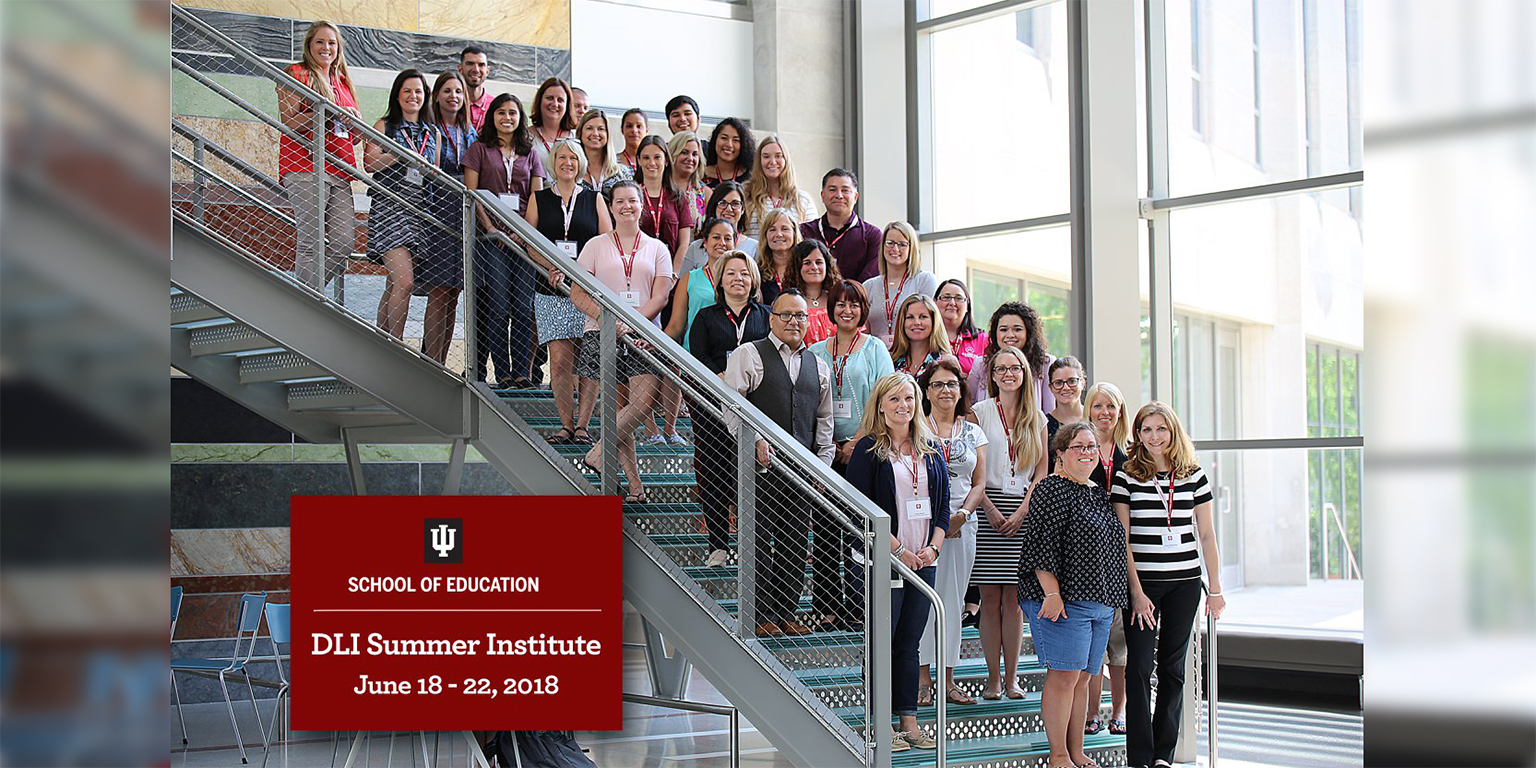
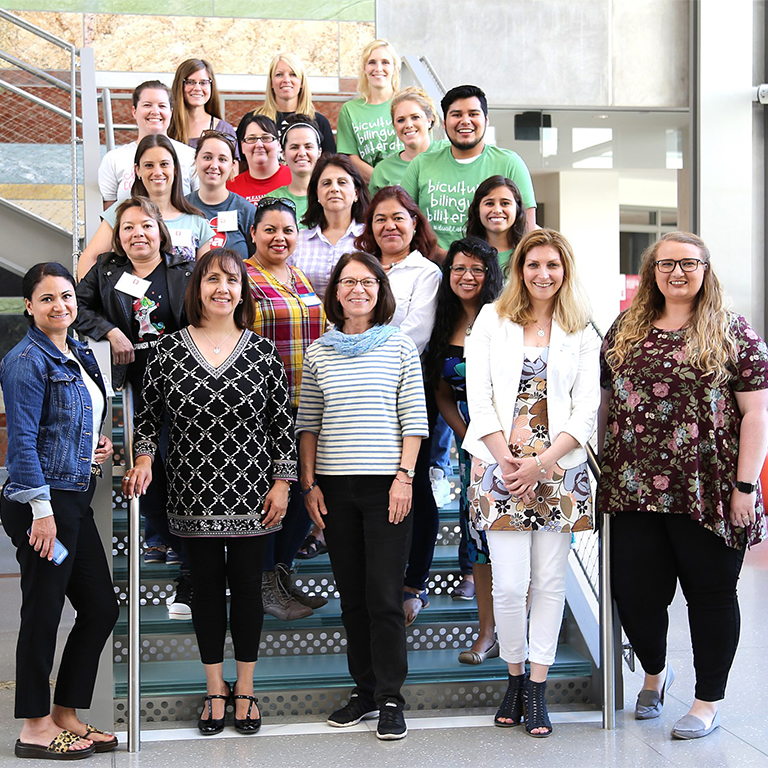
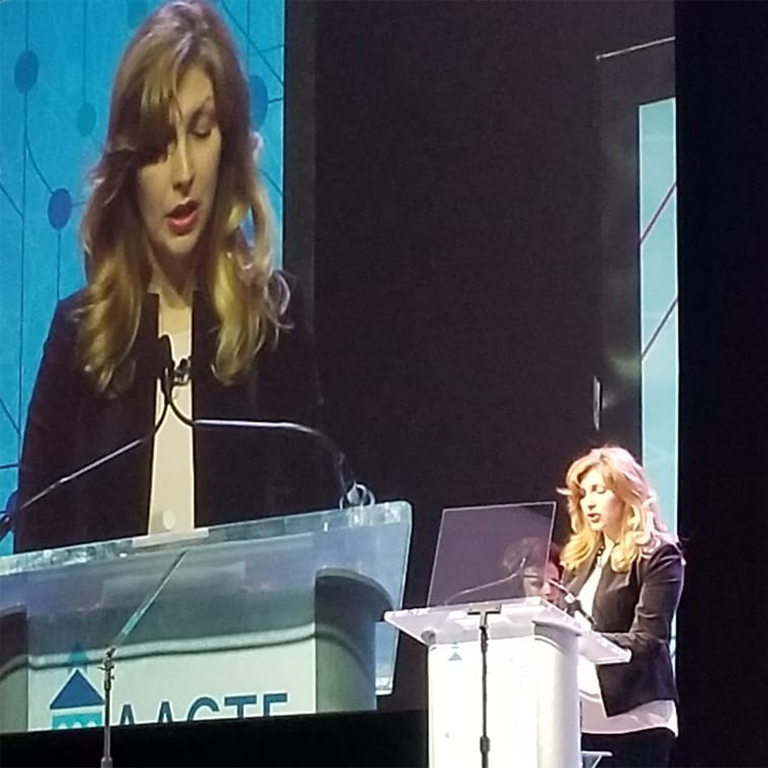
Top and left: Educators from across Indiana attend the 2018 and 2019 Dual Language Education Summer Institutes, both of which Vesna organized. Right: Vesna accepts the 2020 Outstanding Award for Global and International Engagement at the Association of American Colleges of Education in Atlanta, Georgia.
Q: You’ve been directing the Global Classroom for about a year now. What do you love most about this initiative, and what advice do you have for faculty looking to collaborate with an international partner?
A: The experiences the Global Classroom provides to both the IU students and IU instructors are — in one word — transformational. Students in these courses have a chance to interact and collaborate with peers in other countries that they would likely never know otherwise. This type of virtual exchange gives the imagination something concrete to engage with, internalize, and be expanded by. Our courses position students in global work teams and challenge them with real-life applications.
My advice for faculty who are interested in this initiative is three-fold:
- Think about what country or part of the world you would like to engage with.
- Consider if there is someone in your existing professional network with whom you can connect.
- Contact IU Global, expressing to the appropriate representative your interest(s) and asking all the questions — big and small — that you have related to the Global Classroom.
Q: What do you enjoy most about learning a language? Teaching one?
A:Learning a new language allows me to learn something new about myself and to explore cultures and people at a deeper, more intellectually and emotionally meaningful level. Giving the gift of a new language to learners of all ages is incredibly rewarding. You see the world come alive in their eyes. That’s a rush to me.
Q: Do you have any favorite spots on campus? In Bloomington?
A: Several! One of those spots is the Hamilton Lugar School and its elevators. When I enter them, all of the flyers and announcements for courses, talks, and special events for countries and regions both near and far, excite something deep inside me. I’m reminded of why I love to learn and thus why I love to teach. I’m here and elsewhere at the same time. And both places feel more and more like home.
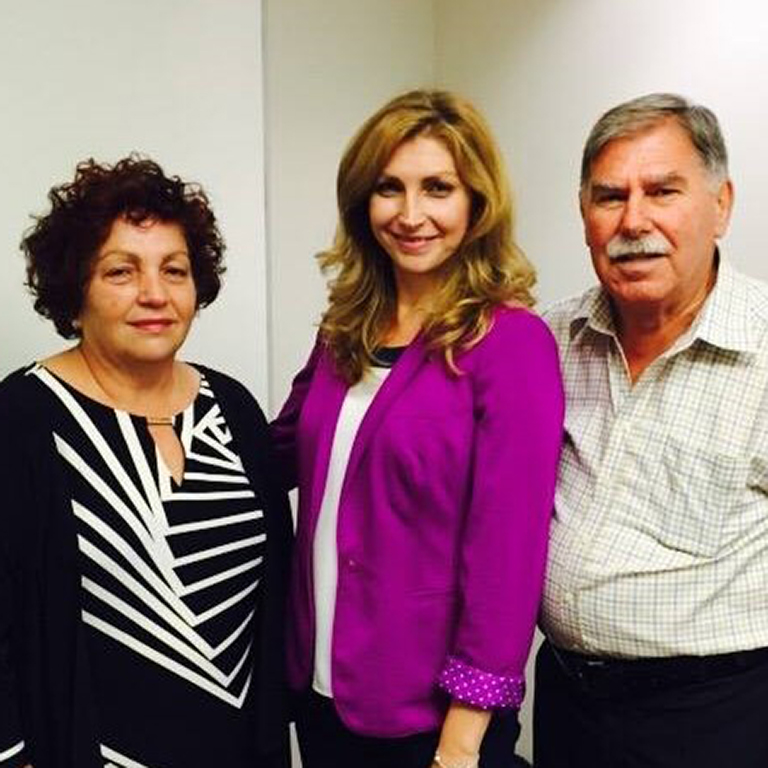
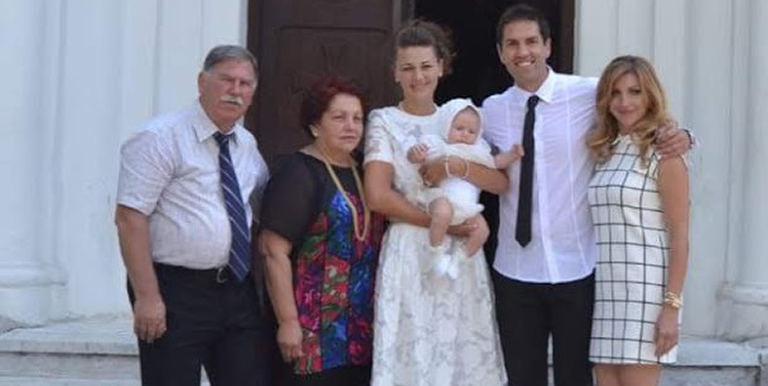
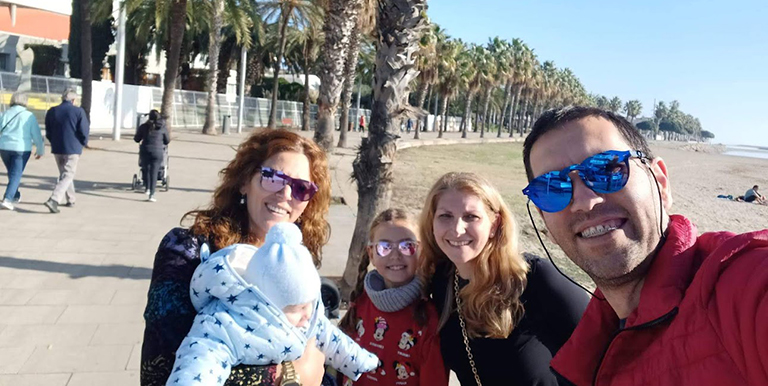
Left: Vesna’s parents attend her doctoral dissertation defense at the School of Education. Top: Vesna visits family in Macedonia. Bottom: Vesna visits family in Spain.


